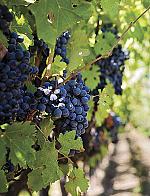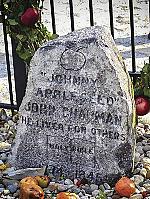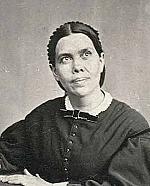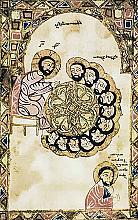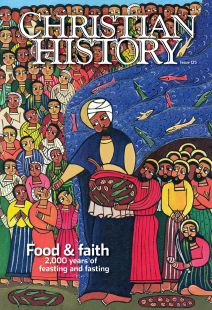Eating (and not eating) with the church fathers
I am the wheat of God, and let me be ground by the teeth of the wild beasts, that I may be found the pure bread of Christ.—Ignatius of Antioch, Epistle to the Romans (2nd century); translated by Alexander Roberts and James Donaldson
For if the eternal God will not hunger, as He testifies through Isaiah, this will be the time for man to be made equal with God, when he lives without food.—Tertullian, On Fasting (3rd century); translated by S. Thelwall
Instructions for the blessing of food by the bishop in church: All shall be diligent to offer to the bishop the first fruits of the fruits of the first harvest. He shall bless them, saying, “We give thanks to you, God, and offer to you the first fruits of the fruits which you have given to us as food, having nourished them by your word, commanding the earth to bring forth all kinds of fruit for the pleasure and nourishment of men and all animals. For all this we praise you, God, in which you have been our benefactor, adorning all creation for us with various fruits, through your Son Jesus Christ our Lord, through whom to you be glory throughout the ages of the ages. Amen.”
These are the fruits which he shall bless: the grape, fig, pomegranate, olive, pear, apple, blackberry, peach, cherry, almond, and plum. But not the pumpkin, melon, cucumber, onion, garlic, or any other vegetable. Sometimes flowers also are offered. The rose and lily may be offered, but no other flowers. With all foods, give thanks to the Holy God, eating them to his glory. —Attributed to Hippolytus, Apostolic Tradition (3rd century); translated by Kevin Edgecomb
When you sit down to eat, pray. When you eat bread, do so thanking Him for being so generous to you. If you drink wine, be mindful of Him who has given it to you for your pleasure and as a relief in sickness. —Basil of Caesarea, Homily V, In martyrem Julittam (4th century), translated by Orthodox Church Quotes
Are there any weary with fasting? Let them now receive their wages! If any have toiled from the first hour, let them receive their due reward; if any have come after the third hour, let him with gratitude join in the Feast!. . . You that have kept the fast, and you that have not, rejoice today for the Table is richly laden! Feast royally on it, the calf is a fatted one. Let no one go away hungry. Partake, all, of the cup of faith. Enjoy all the riches of His goodness!—Easter sermon of John Chrysostom (c. 400); translation found at Anglicans Online
When then my mother had once, as she was wont in Africa, brought to the churches built in memory of the Saints, certain cakes, and bread and wine, and was forbidden by the door-keeper; so soon as she knew that the Bishop had forbidden this, she so piously and obediently embraced his wishes. . . . When she had brought her basket with the accustomed festival-food, to be but tasted by herself, and then given away, [she] never joined therewith more than one small cup of wine, diluted according to her own abstemious habits, which for courtesy she would taste.—Augustine, Confessions (c. 400), book 6, chapter 2, section 2; translated by E. B. Pusey
O glutton, bent on the worship of your own belly! It is better for you to cast a live coal into your stomach than the fried foods of rulers and princes. —Isaac the Syrian, Homily 17, Ascetical Homilies (7th century), translated by Arent Jan Wensinck
By Jennifer Woodruff Tait, compiler
[Christian History originally published this article in Christian History Issue #125 in 2018]
Next articles
Raise a juice box to the temperance movement
Getting unfermented wine from the vineyard
Jennifer Woodruff TaitSupport us
Christian History Institute (CHI) is a non-profit Pennsylvania corporation founded in 1982. Your donations support the continuation of this ministry
Donate



